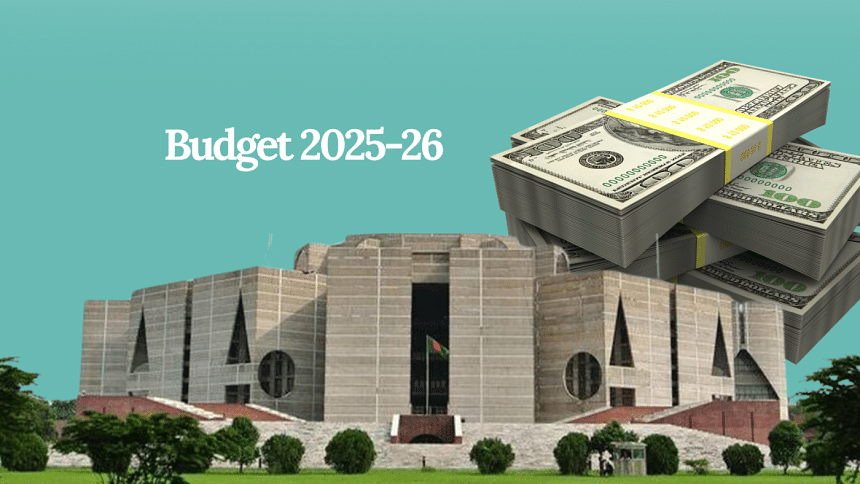FY26 budget: Debt servicing costs, food subsidies to rise

- IMF providing technical assistance for banking sector allocation
- ADB may provide $500m
The next budget may be slightly smaller than the current fiscal year's, but non-development spending is expected to rise by over 5 percent due to higher debt servicing costs, food subsidies, and a special allocation for bank reforms.
The size of the next budget would reach Tk 7,90,000 crore -- Tk 7,000 crore less than the budget for the ongoing fiscal year, according to a draft prepared at a fiscal coordination council meeting last month.
This is in contrast to the trend of raising the budget size every year during the previous governments' tenures, as the interim administration has adopted a fiscal tightening policy.
The non-development budget is expected to be set at Tk 5,60,000 crore, up by Tk 28,000 crore from the current fiscal year's allocation.
Finance ministry officials said the government is aiming to strengthen the banking sector with a special allocation to meet the capital shortfall of state-owned banks. Some selective private banks would also get allocations on some conditions.
The funds may be disbursed as loans under the International Monetary Fund's guidelines, rather than budget-allocated capital given by the previous government.
The IMF is giving technical support in this regard, and a team has already started working, finance ministry officials said. Besides, the government has received a green signal from the Asian Development Bank for $400-500 million in loans for banking sector reforms.
Latest Bangladesh Bank data shows state-owned banks face a capital shortfall of Tk 65,267 crore, with all except Sonali Bank and Bangladesh Development Bank falling below required levels.
Shariah-based banks also face a capital shortfall of Tk 58,780 crore, with eight out of 10 Islamic banks affected, excluding only Shahjalal Islami Bank and Exim Bank. A few of the conventional banks are also facing capital shortfalls.
Bangladesh Bank and the finance ministry have launched rigorous reform initiatives in the country's banking sector, with one package for providing capital support.
Finance ministry officials said the government's overall budget policy is to reduce expenditure, avoiding additional allocations for subsidies, salaries, and allowances.
However, some sectors will see unavoidable increases. High inflation is expected to push food subsidy costs up by around Tk 2,500 crore from the current fiscal year's Tk 7,250 crore. Additionally, the overall allocation for social safety net programmes may rise by Tk 10,000 crore.
Due to the devaluation of the taka, both interest payments and principal repayments are set to rise.
In the current fiscal year, Tk 1,13,500 crore was allocated for interest payments and debt servicing. Officials say the upcoming budget will add another Tk 20,000 crore solely for interest payments.
Taka devaluation will also raise the cost of repaying foreign loan principals. At the time of this fiscal year's budget in June, the exchange rate was Tk 110 per dollar; it now stands at Tk 120.
According to the Economic Relations Division, debt servicing on foreign loans rose by 24 percent in dollar terms during the first nine months of the fiscal year, and by 37 percent in taka terms.
Additionally, the government plans to allocate Tk 800 crore to support families of those killed and injured during the 2024 uprising, under the Directorate of July Mass Uprising.
Meanwhile, the development budget is likely to be reduced by Tk 35,000 crore and set at Tk 2,30,000 crore, a proposal expected to be presented at the upcoming National Economic Council meeting within a couple of days.


 For all latest news, follow The Daily Star's Google News channel.
For all latest news, follow The Daily Star's Google News channel. 



Comments